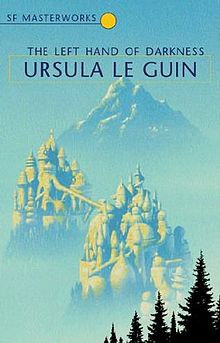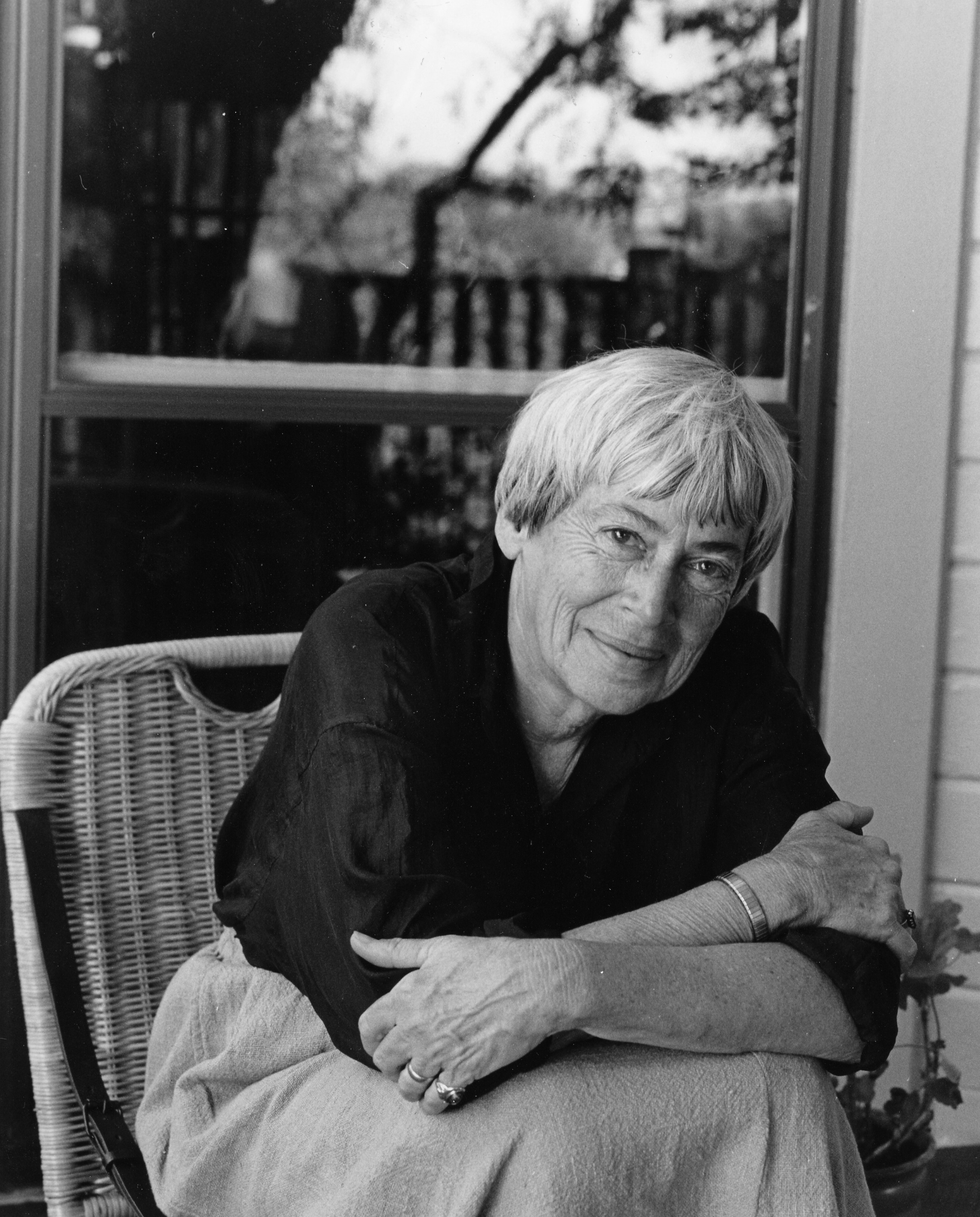Inspiration From Surprising Sources
 Awhile back, I bought a used copy of Ursula K. LeGuin’s The Left Hand of Darkness. After the purchase, I leafed through it and thought, Oh-oh – have I read this already? Parts of it look familiar.
Awhile back, I bought a used copy of Ursula K. LeGuin’s The Left Hand of Darkness. After the purchase, I leafed through it and thought, Oh-oh – have I read this already? Parts of it look familiar.
That’s one of the nice things about this stage of life; because I’m so prone to forgetting, I can re-read a book as if for the first time. Kind of like my husband watching TV. He’s forever falling asleep at the beginning of a show, so in his world, there’s no such thing as reruns.
When I was young and had a memory, I didn’t read much science fiction. So when I inexplicably took up writing it, I had a lot of catching up to do. I’m still way behind—and, as noted above, much of what I read nowadays passes through the eyes to the brain where it gets lost in the haze. But circa 2008, when I discovered Ursula LeGuin (who’s been a big name in sci-fi since what, the 60s? and I’m just now hearing of her?), I was instantly impressed. My introduction to her work was the short story “The Day Before the Revolution,” which led me to the novel The Dispossessed. Pretty sure I’ve read some of her other stuff too, but… well, as noted above, I’m a little vague on the titles.
From what I can see, I probably have nothing in common with Ms. LeGuin’s social, political, or religious thinking. Nevertheless, her writing resonates with me. It cuts through the niceties straight to the heart of the matter, though she and I view that heart from different perspectives. I read her books and say, “Yeah! I want to write like that!”
It’s not her vision or her worldview that inspires me, but the clarity and artistry with which she pictures it. I feel like a first-year student watching Michaelangelo at work, or a ten-year-old vocal student listening to an opera star belt out an aria.
The Left Hand of Darkness was originally published in 1969, but the edition I have contains an introduction she wrote in 1976. I’d like to share it with y’all. Major excerpts from it, anyway. It deals with some of the things we see discussed on this blog. Even if you don’t care for opera, I hope you’ll bear with me while this intro sings:
Science fiction is often described, and even defined, as extrapolative. The science fiction writer is supposed to take a trend or phenomenon of the here-and-now, purify and intensify it for dramatic effect, and extend it into the future. “If this goes on, this is what will happen.” A prediction is made. Method and results much resemble those of a scientist who feeds large doses of a purified and concentrated food additive to mice, in order to predict what may happen to people who eat it in small quantities for a long time. The outcome seems almost inevitably to be cancer. So does the outcome of extrapolation. Strictly extrapolative works of science fiction generally arrive about where the Club of Rome arrives: somewhere between the gradual extinction of human liberty and the total extinction of terrestrial life.
This may explain why many people who do not read science fiction describe it as “escapist,” but when questioned further, admit they do not read it because “it’s so depressing.”
Almost anything carried to its logical extreme becomes depressing, if not carcinogenic.
Fortunately, though extrapolation is an element in science fiction, it isn’t the name of the game by any means…
Science fiction is not predictive; it is descriptive.
…
Prediction is the business of prophets, clairvoyants, and futurologists. It is not the business of novelists. A novelist’s business is lying.
…
Open your eyes; listen, listen. That is what the novelists say. But they don’t tell you what you will see and hear. All they can tell
you is what they have seen and heard, in their time in this world, a third of it spent in sleep and dreaming, another third of it spent in telling lies.
“The truth against the world!”—Yes. Certainly. Fiction writers, at least in their braver moments, do desire the truth: to know it, speak it, serve it. But they go about it in a peculiar and devious way, which consists in inventing persons, places, and events which never did and never will exist or occur, and telling about these fictions in detail and at length and with a great deal of emotion, and then when they are done writing down this pack of lies, they say, There! That’s the truth!
…
In reading a novel, any novel, we have to know perfectly well that the whole thing is nonsense, and then, while reading, believe every word of it. Finally, when we’re done with it, we may find—if it’s a good novel—that we’re a bit different from what we were before we read it, that we have been changed a little, as if by having met a new face, crossed a street we never crossed before. But it’s very hard to say what we learned, how we were changed.
The artist deals with what cannot be said in words.
The artist whose medium is fiction does this in words. The novelist says in words what cannot be said in words.
…
All fiction is metaphor. Science fiction is metaphor. What sets it apart from older forms of fiction seems to be its use of new metaphors, drawn from certain great dominants of our contemporary life… Space travel is one of these metaphors; so is an alternative society, an alternative biology; the future is another. The future, in fiction, is a metaphor.
A metaphor for what?
If I could have said it non-metaphorically, I would not have written all these words, this novel.
From the introduction to The Left Hand of Darkness by Ursula K. Le Guin, 1976
Man, I wish I’d said that.
Of course if I had, I’d have forgotten about it by now. I’ll bet that’s why Ms. LeGuin wrote things down.







































Yeah, on a craft level Christian writers can be influenced by anyone. That’s why it’s important to read widely, because many people who you wouldn’t agree with theologically, or who write in genres you can’t stand might teach you something about how to write.
Thanks, D.M. In my not-shared-by-everyone opinion, I think we not only can, but should read widely and out of our cozy zone. It’s necessary to prevent Christian fiction from becoming inbred and deformed.
Amen. Christian novelists need to read the Bible to learn what they should believe, and then read the best novels in their genre — regardless of author worldview — to learn how to express those beliefs.
If we don’t learn from the best, we can’t claim we’re committed to artistic quality.
Absolutely! And especially thank you, Austin, for putting the Bible first.
So, what is the future a metaphor of? Right, she said she couldn’t express it in words. But maybe it’s the process of transformation, of unfolding story itself. In science fiction, the hope of transformation is imputed to the future.